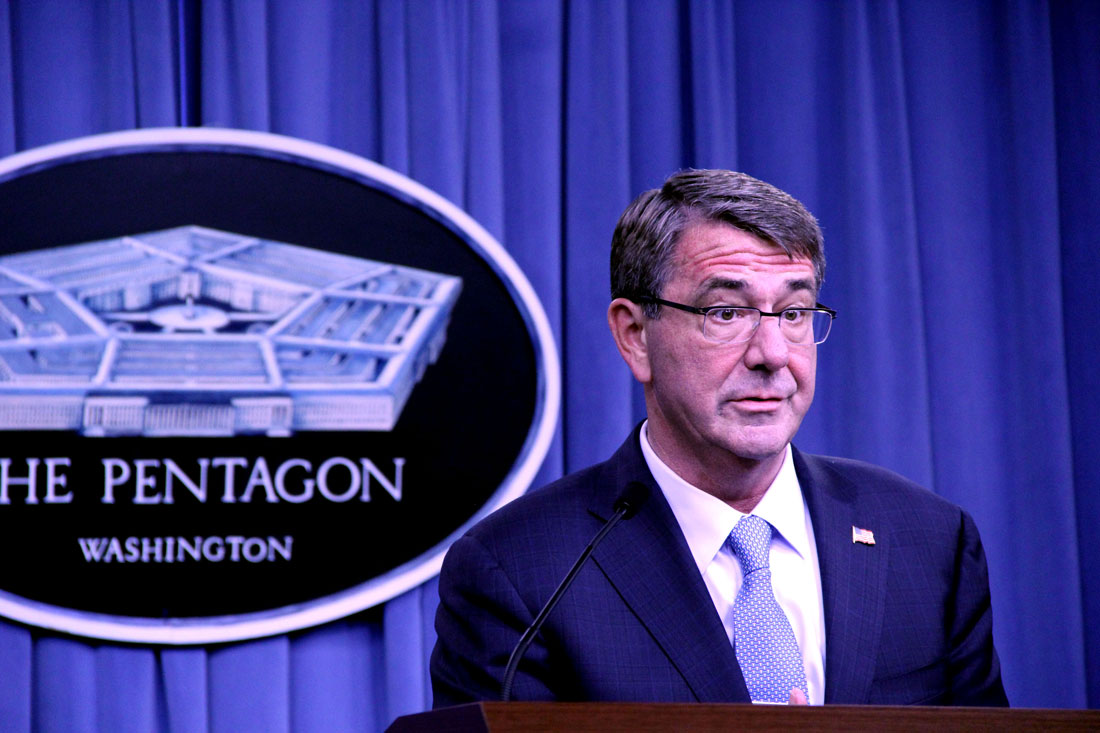WASHINGTON – Defense Secretary Ashton Carter defended President Barack Obama’s decision to keep 5,500 troops in Afghanistan through 2017 in a briefing at the Pentagon on Thursday. But reaction to the announcement was mixed.
Obama announced earlier Thursday that the 9,800 troops currently stationed in Afghanistan would stay there through most of next year before tapering off to 5,500 by the end of his term in early 2017.
Carter said this decision “gives us a chance to finish what we started” as America’s national security remains “very much at stake in that part of the world.”
The defense secretary praised the president for departing from his plan to withdraw all troops stationed in Afghanistan by the end of 2016. Carter said that while “Afghanistan is on a better path … more work lies ahead.”
This decision came on the heels of al-Qaeda’s occupation of the city of Kunduz, during which a U.S. airstrike hit a Doctors Without Borders facility, killing 22 people. Though the Taliban has since left the city, the attack was a setback in the ongoing effort to stabilize the region.
In his White House announcement earlier Thursday, Obama said while Afghan forces have been able to push back Taliban attacks, the fighting has come with a heavy human cost to the government and the Afghan people.
“This year alone, thousands of Afghan troops and police have lost their lives as have many Afghan civilians,” he said. “At the same time, Afghan forces are still not as strong as they need to be.”
Secretary Carter echoed the president’s comments and said the mission for the troops left behind will remain the same: counter any terrorist activity in the country as well as train and aid Afghani forces.
“I think the decision to cut 4,300 troops is a mistake,” said Frederick Kagan, chairman and director of the Critical Threats Project at the American Enterprise Institute, a conservative leaning think tank. “Nothing is going on in Afghanistan to justify this decision.”
“The president had promised to do something that is a complete catastrophe [removing all troops in Afghanistan]. This decision is no longer a catastrophe, but foolishness,” Kagan said in a phone interview.
Michael O’Hanlon, senior fellow and director of the Brookings Institution’s center on 21st Century Security and Intelligence, agreed with the Obama administration’s decision to keep some forces in Afghanistan into 2017.
“With this decision, [Obama] will hand off to his successor military forces and tools in Afghanistan that will continue to be critically needed in 2016, 2017 and beyond,” O’Hanlon said in an email.
“We went to Afghanistan for a compelling reason: to ensure that Afghanistan never again served as a sanctuary for al-Qaeda and other extremist groups…” O’Hanlon said. “The importance of that mission continues.”


